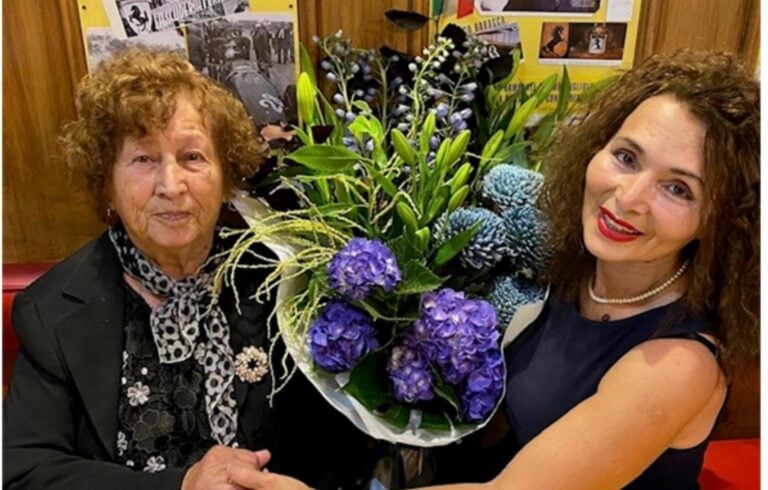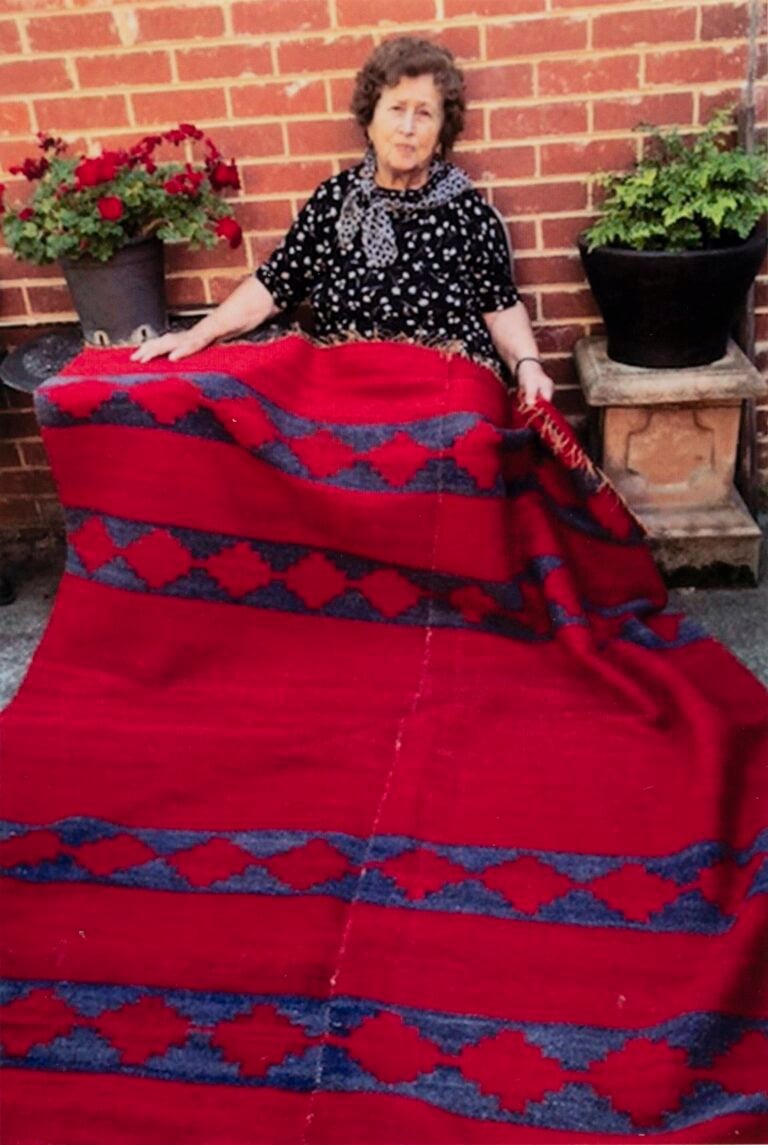As part of the Open Horizons exhibition at the Melbourne Museum, dozens of artifacts that reflect the cultural heritage of Greece and Greek people join 44 rare exhibits from Ancient Greece.
Greek sculptures, bronzes and other precious items — like the 2,500-year-old sphinx which had never before left Greece, and a colossal head of Zeus — are on show, in Melbourne. The program highlights the connection between Ancient Greece and neighbouring ancient civilizations, as well as the continual influence of the Hellenic Diaspora, especially in Australia.
The exhibition, was scheduled to coincide with the 200th anniversary of the Greek War of Independence – made impossible by the global pandemic. However, a new date was set and in response the Melbourne Museum incorporated stories of Greek people and their personal journeys. And the influence they’ve had as Diaspora on the fabric of Australia.

One of the exhibits that carries the history of generations is a handmade woolen blanket Effie Spiropoulos now 102 years old.
Effie weaved the blanket in 1938-39 then a teenager, for her dowry. She did it under the light of an oil lamp, and from locally spun wool, in her small village of Flessiada in the Peloponnese. The bright red colour of the blanket was achieved using beetroot, onion and walnut husk.
Effie had to walk three hours to the nearest town to source new colours she needed, and was only able to weave a piece of cloth as wide as the loom it was on. Effie made two pieces before carefully stitching them together.
She grew up during the Great Depression and witnessed her father’s life savings plummet overnight. On the land they had, her parents grew their own produce to ensure food was on the table. They also kept a plate in the cupboard for people passing through her village in search of jobs, some of whom hadn’t eaten for days.

World War II brought with it devastation and terror. At 19, Effie – the second of six siblings – worked with her older sister to keep the younger once safe while her parents worked to ensure they could provide for their family.
She was married just after WWII and gave birth to her eldest son, Paul, just before her husband went off to fight in the Civil War. She struggled to raise her son alone until the nd of the Civil War in 1949. Her husband survived, but food was scarce and the land lay barren.
“My darling mum had another six children making a total of seven of which I am the sixth. Mum had all her children at home without a doctor and with only a local woman acting as a midwife.
“We had no electricity and no water in the house. We had to go to the village square to get our daily water supply. Life was hard and mum and dad worked endlessly to support their large family.”
“I was too young to realise the hardships and only now can I appreciate what it must have been like. My older siblings tried to help on the land as much as they could but life was hard. I was shielded from the pain. For me I remember life as sweet.” her daughter, Stavroula Spiropoulos told Neos Kosmos.

Stavroula says that childhood was “cosy and warm.” She remembers being huddled around the open fire place on cold, winter nights and her mum telling stories.
“The flames from the fire made pictures on the wall and the wind whistled through the land and we were warm and safe. Life was filled with love and kindness. We didn’t have any toys but who needs toys when you have nature to play in. We climbed trees, scaled the mountain, swam in the river, we were happy. But for my beautiful parents everyday was a struggle.”
Looking for a better life for their children, Effie and her husband uprooted the family in September 1964 to migrate to Australia on the Patris. They had seven children aged from two to 16 years of age.
“Every year with my mum and my sisters we’d air the blanket out and look at it and wonder ‘how this lovely lady with hardly anything from the shops created this?’,” her daughter said.

Kyria Effie, still lives in Fawkner where she has resided since arriving in Melbourne.
“Our family has multiplied and we all live in different parts of Melbourne, but Fawkner is always home and mum is the heart that draws us together,” said Stavroula.
Effie Spiropoulos reads Neos Kosmos three times a week and spends her time in the garden, and tends to her chickens.
“She has chickens because she cannot bear to throw away even one crumb of food. You walk with mum in her garden and you feel peace and contentment. She calms us. Her life has been filled with wars and hardships and yet she is so positive, generous and grateful for everything she has.”
This is a story of how an object, a handmade blanket, has great intangible cultural value, and links people and family, history, culture and society. It is an artifact that may not be thousands of years old yet has immeasurable value to those it belongs to.









